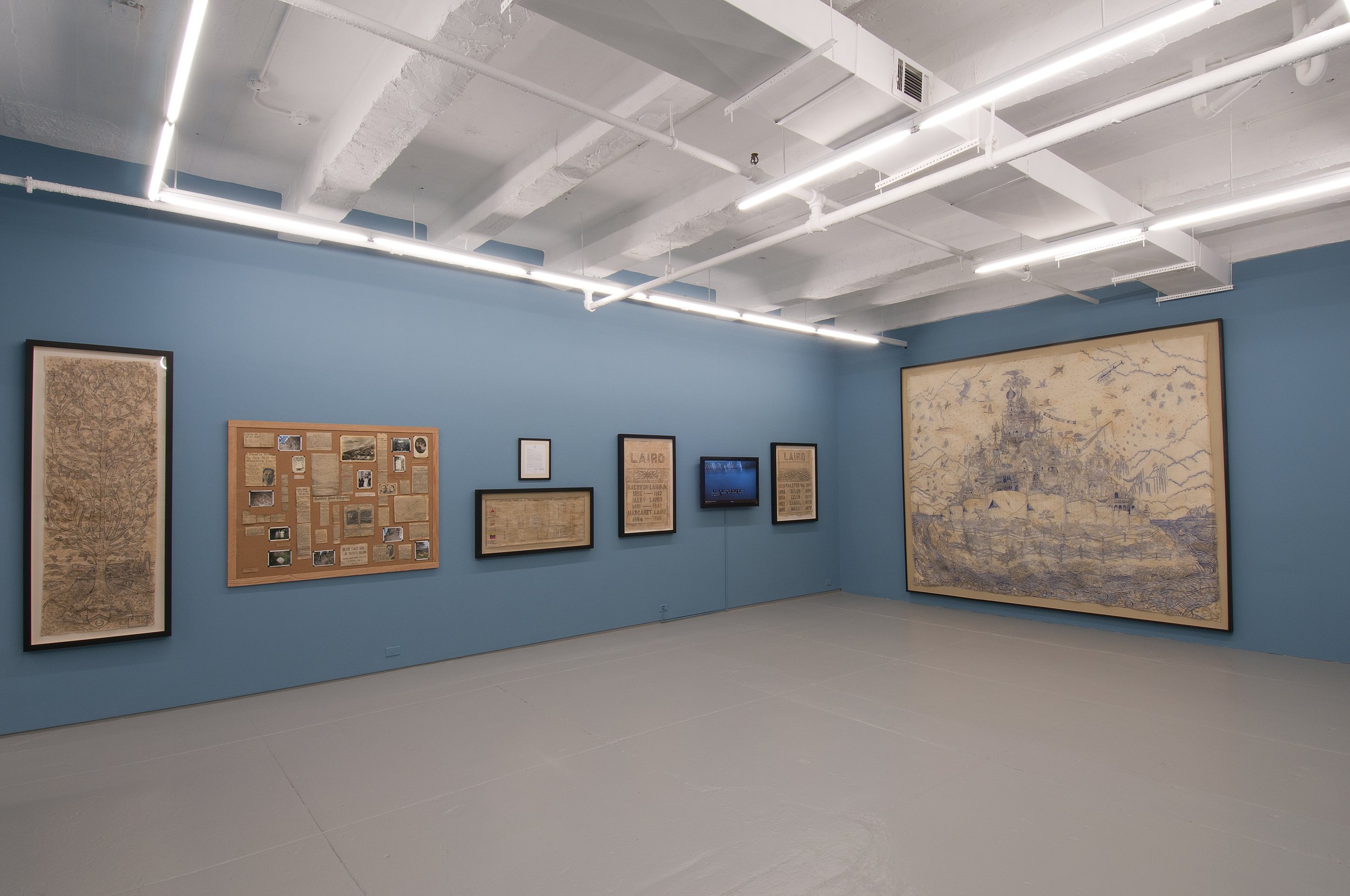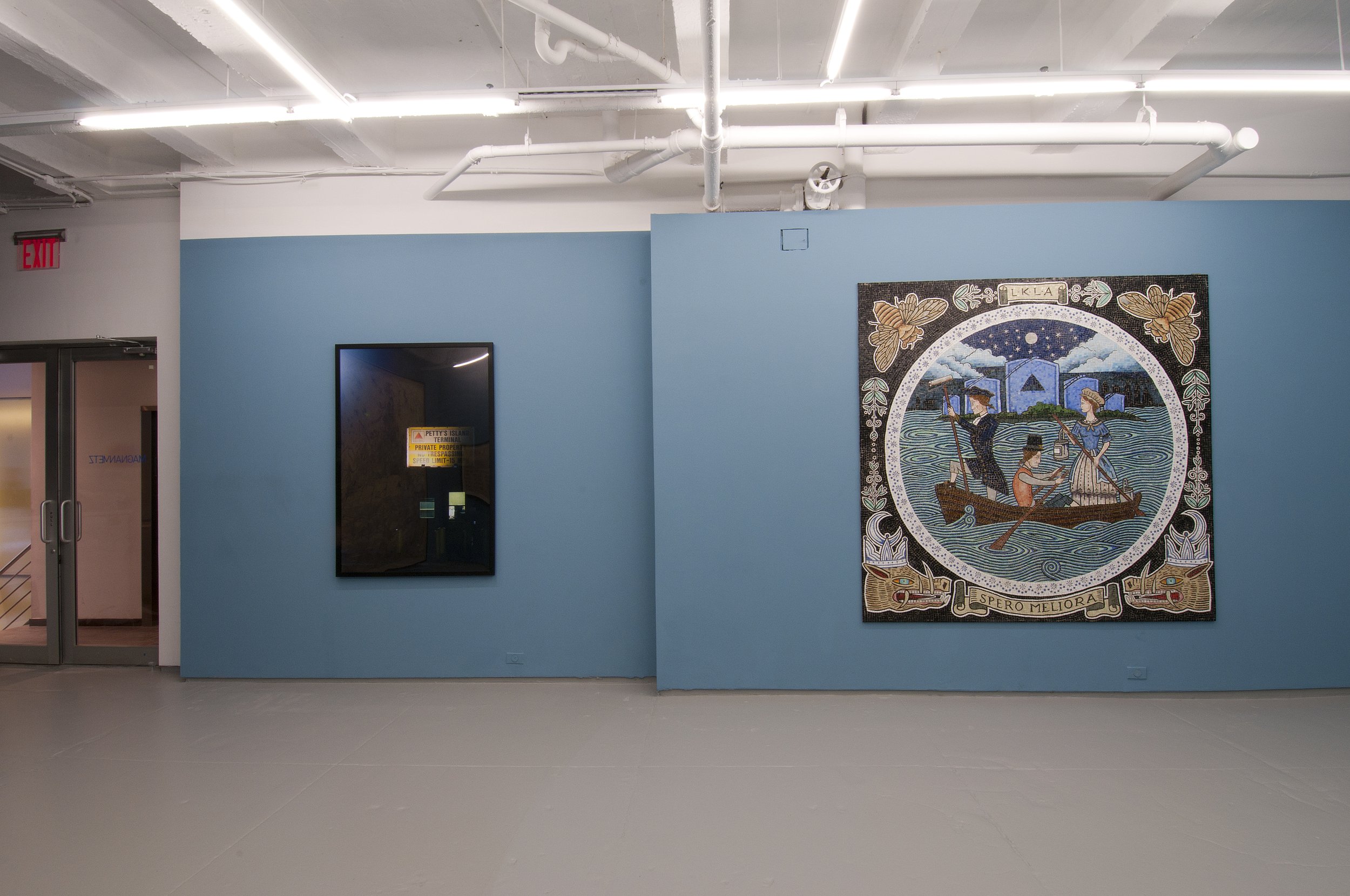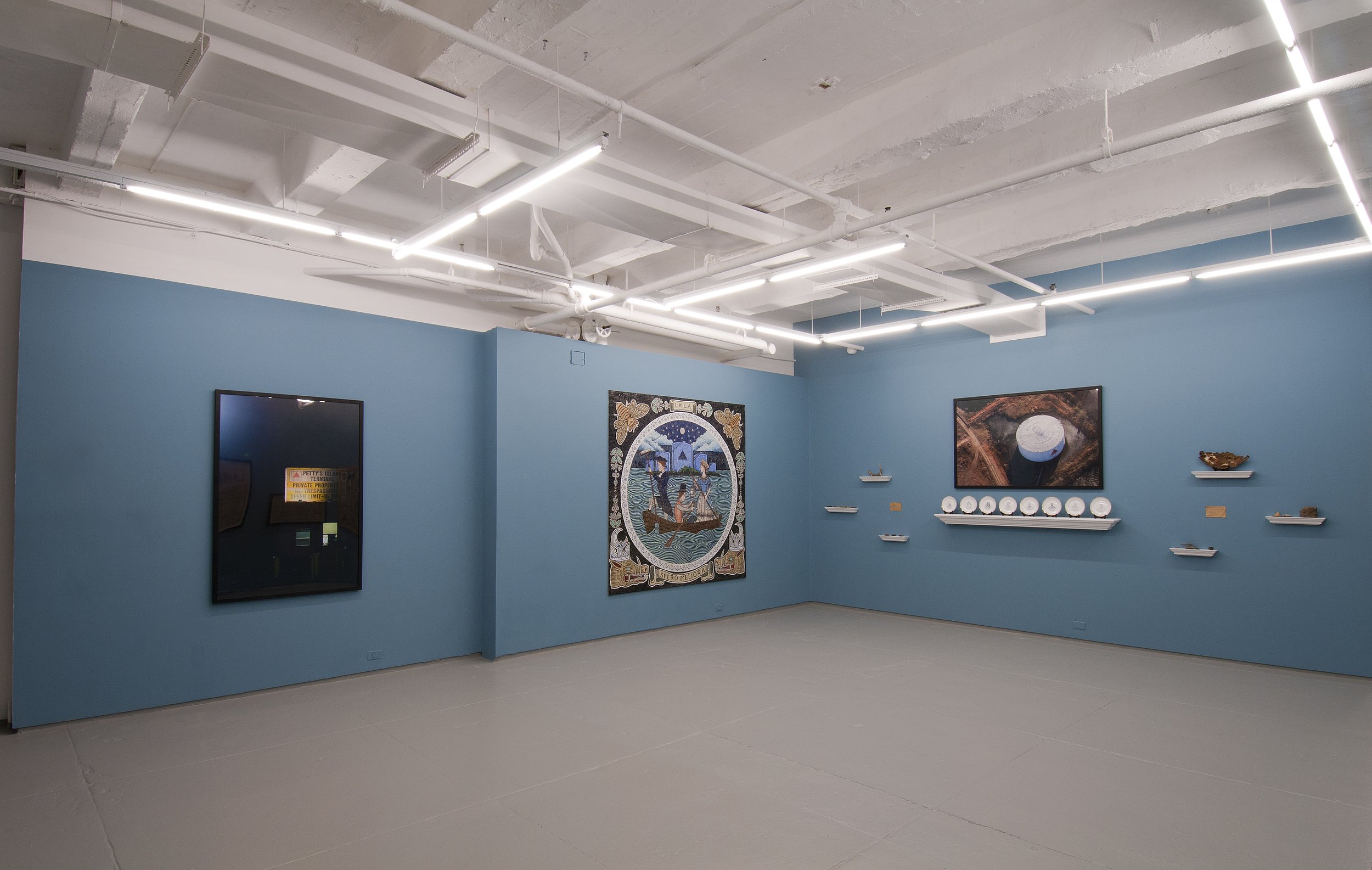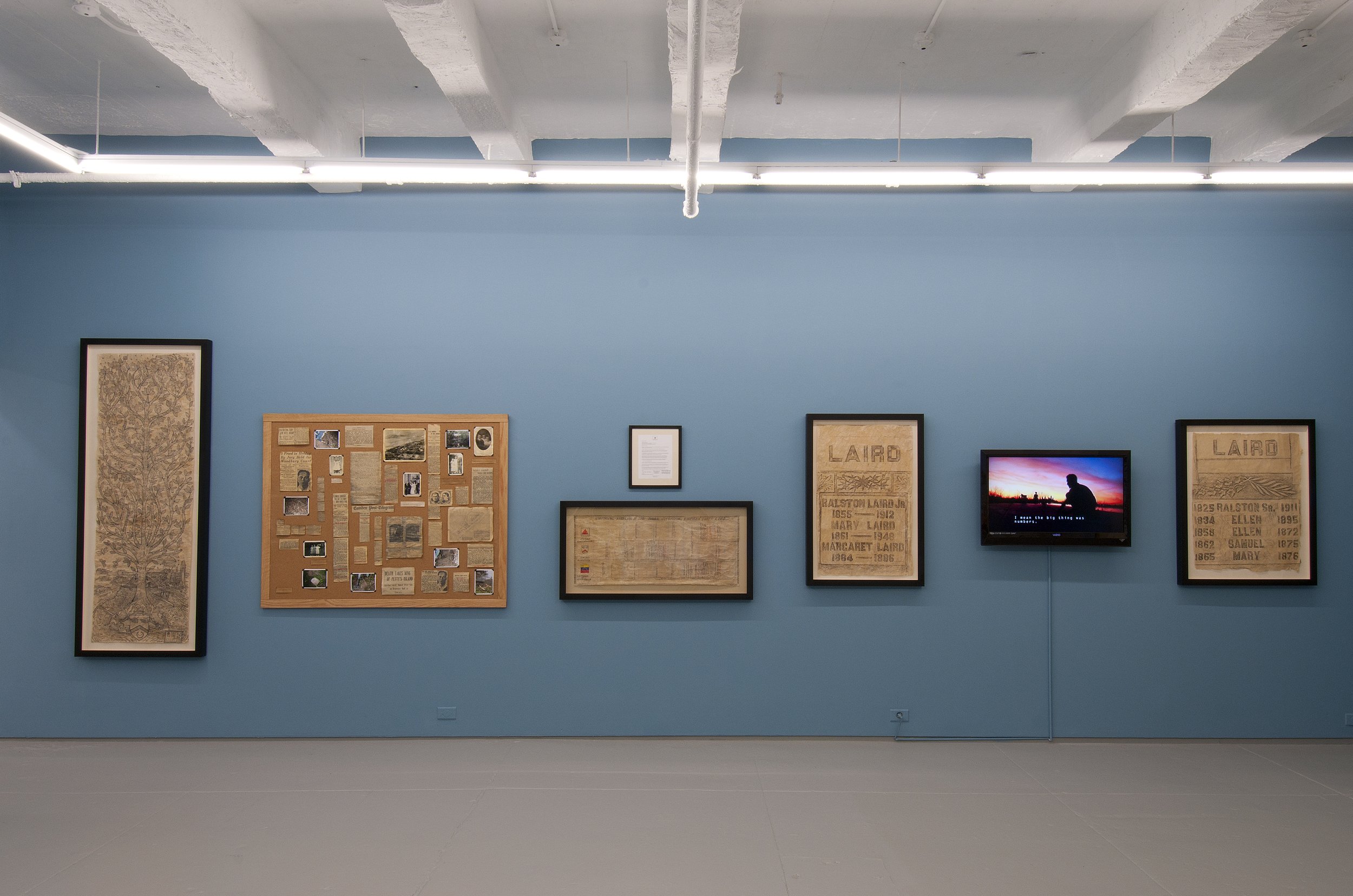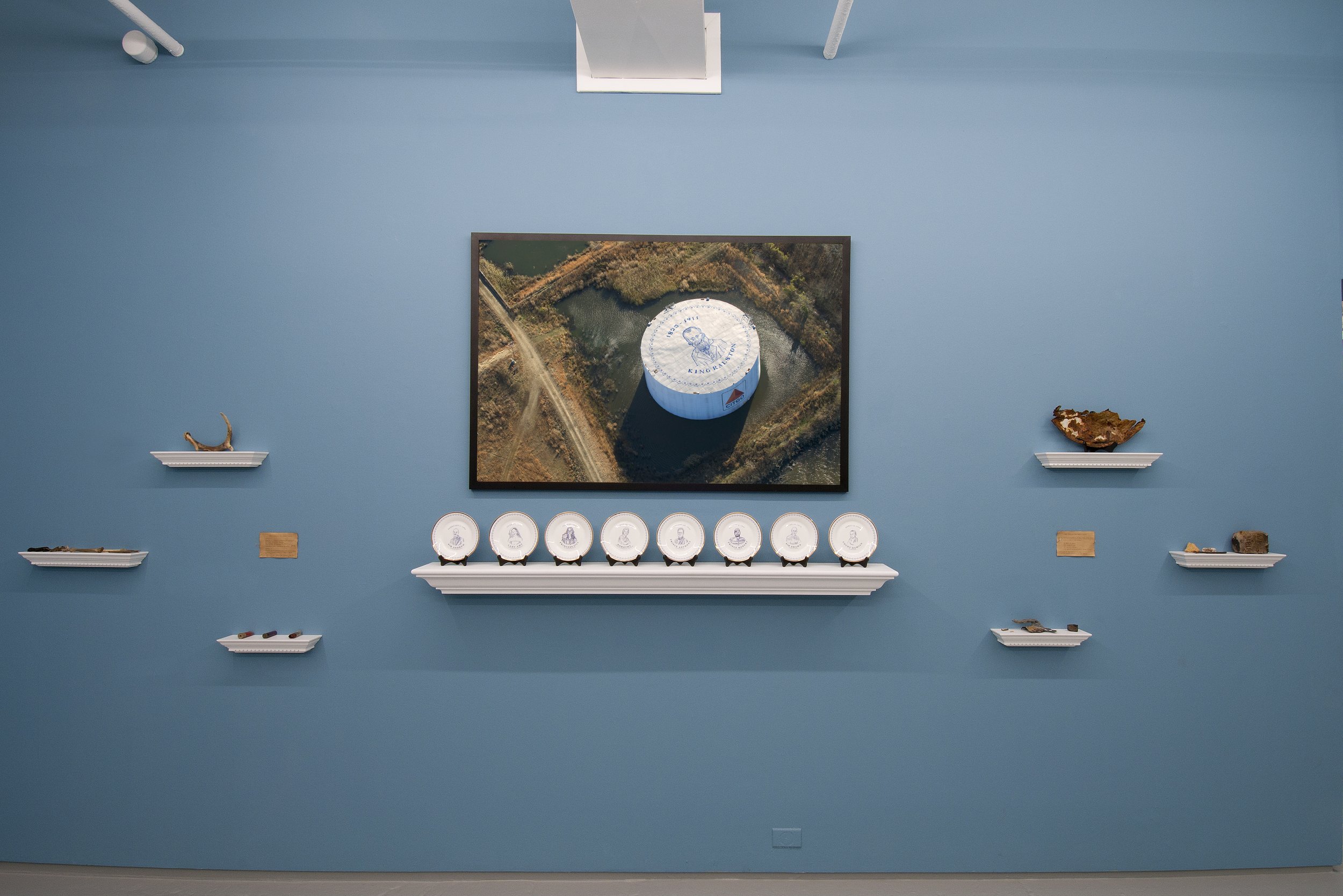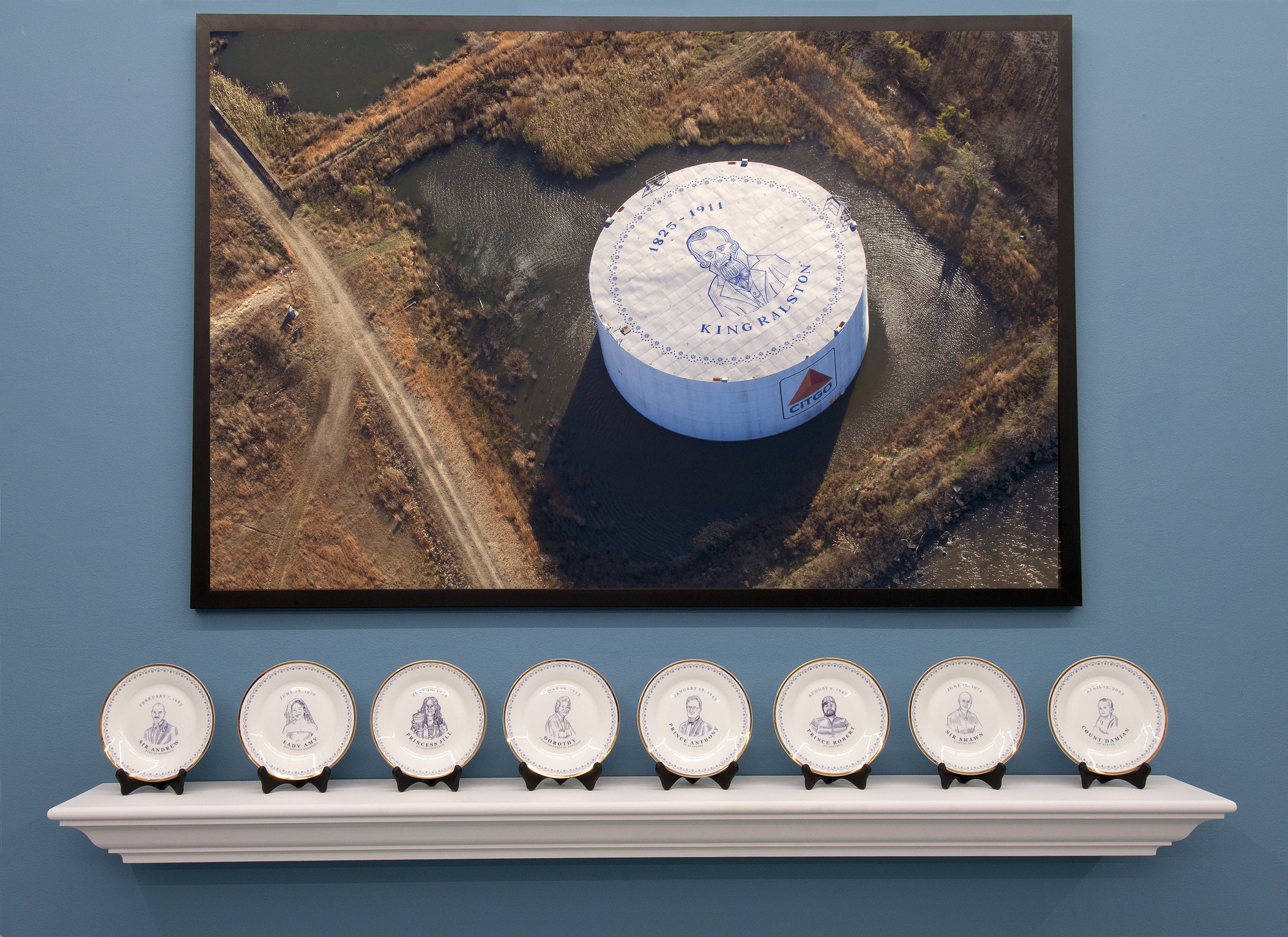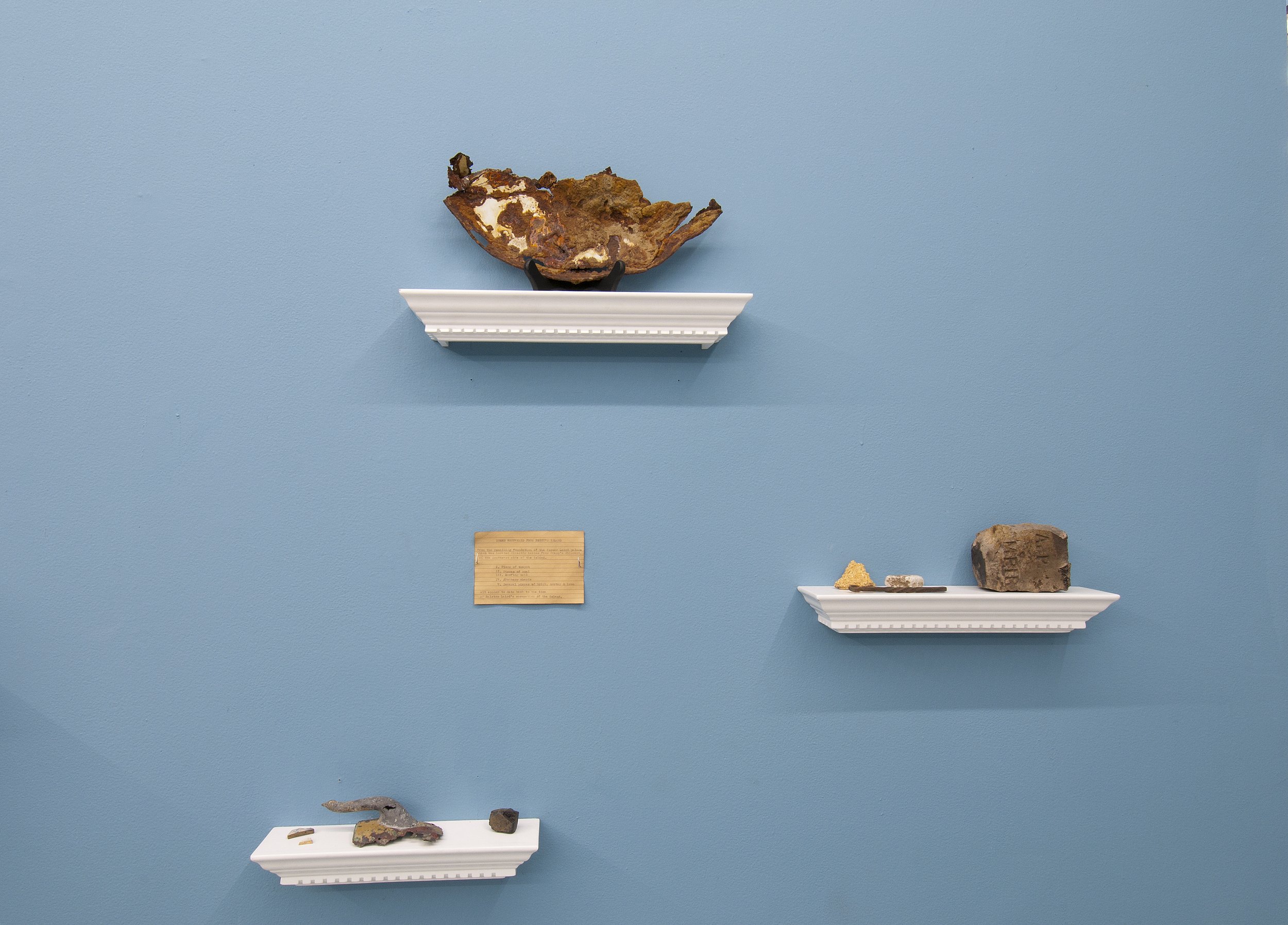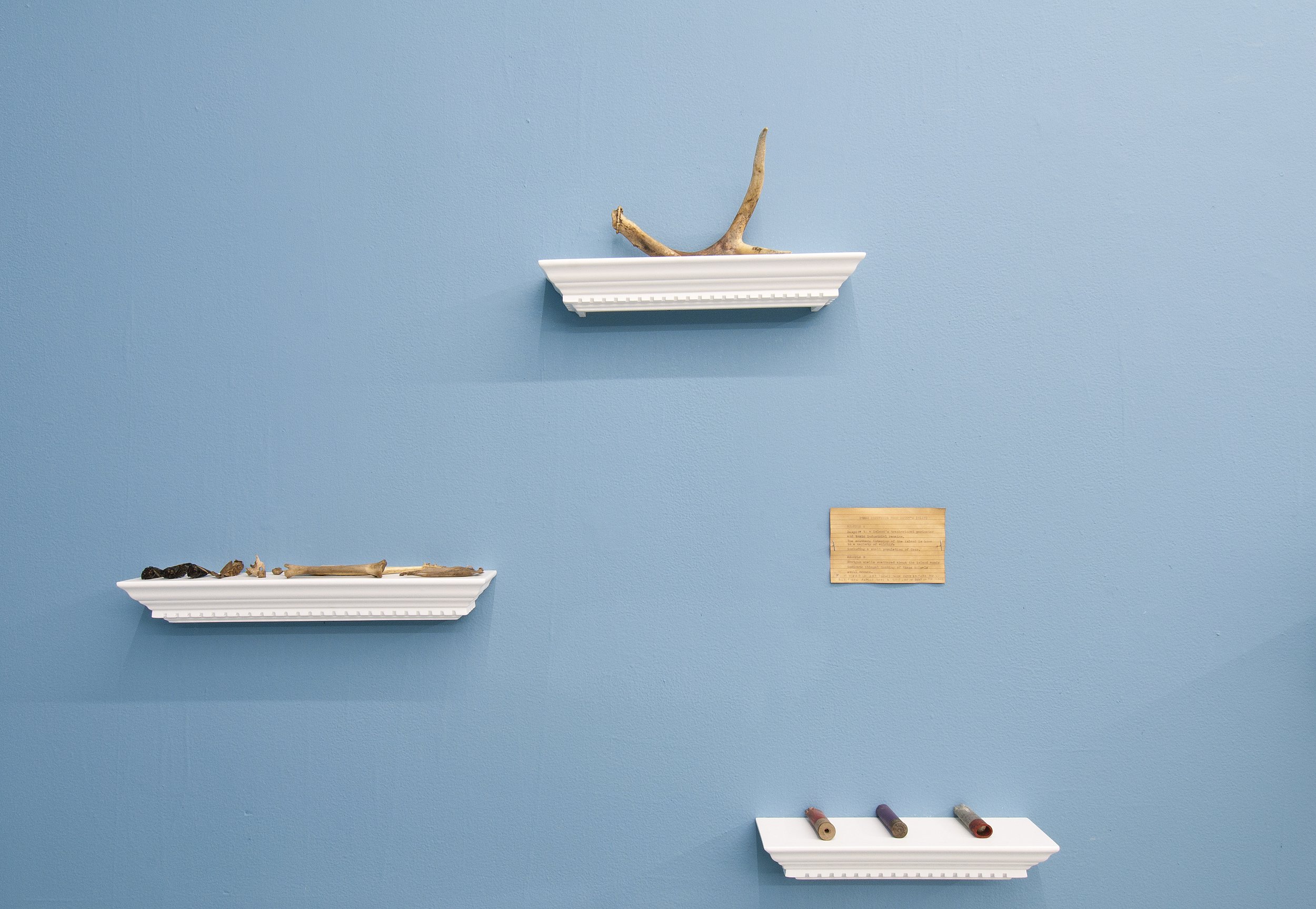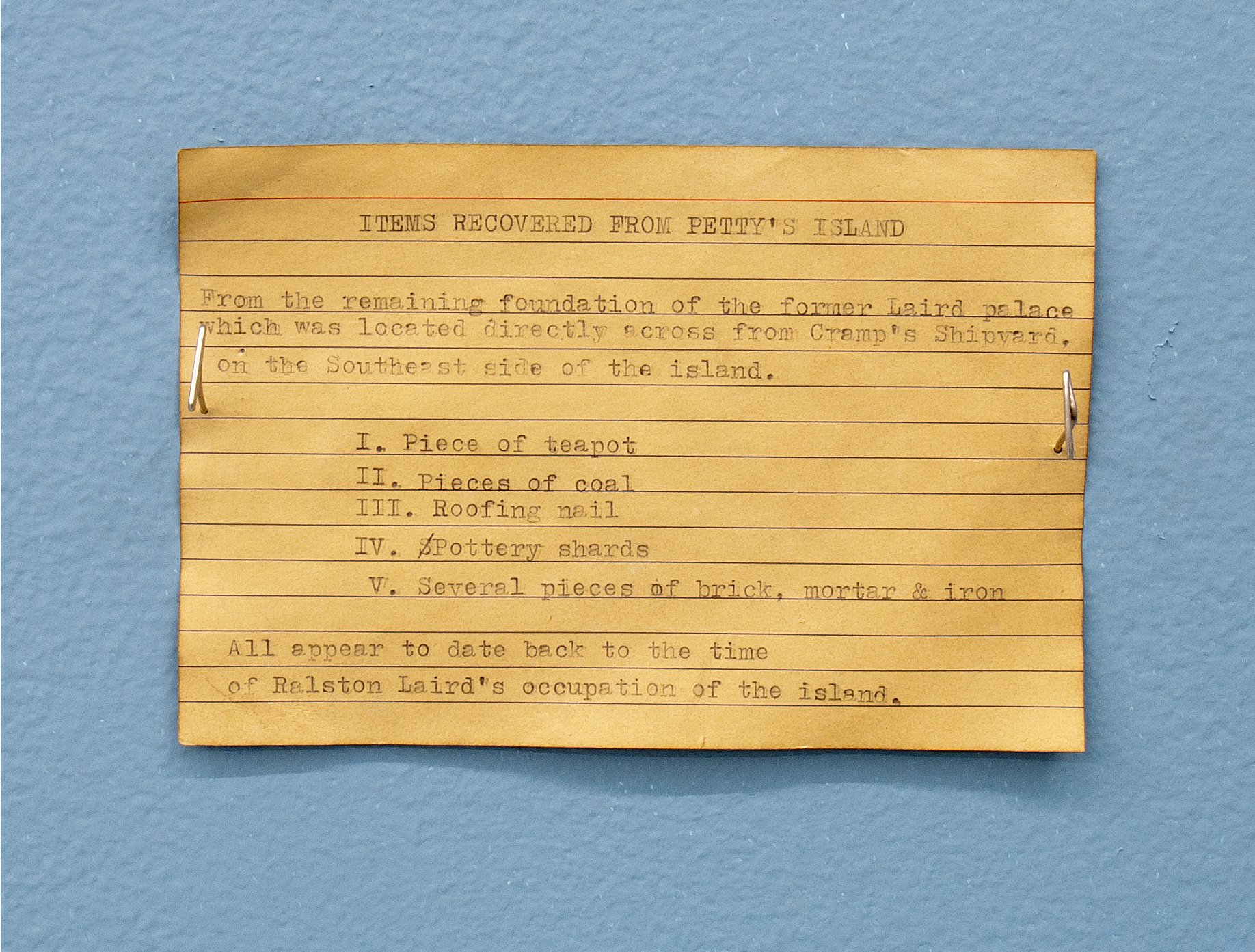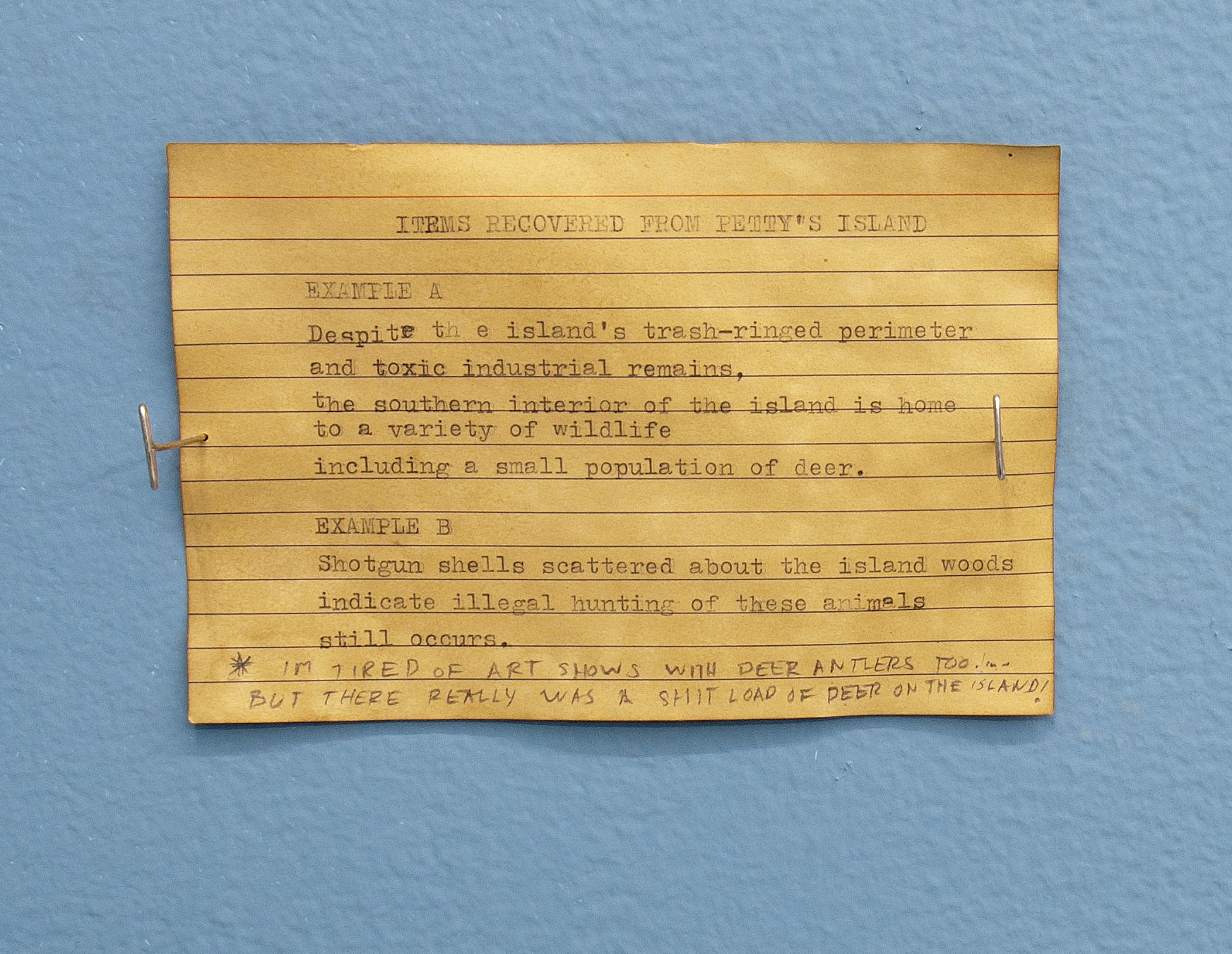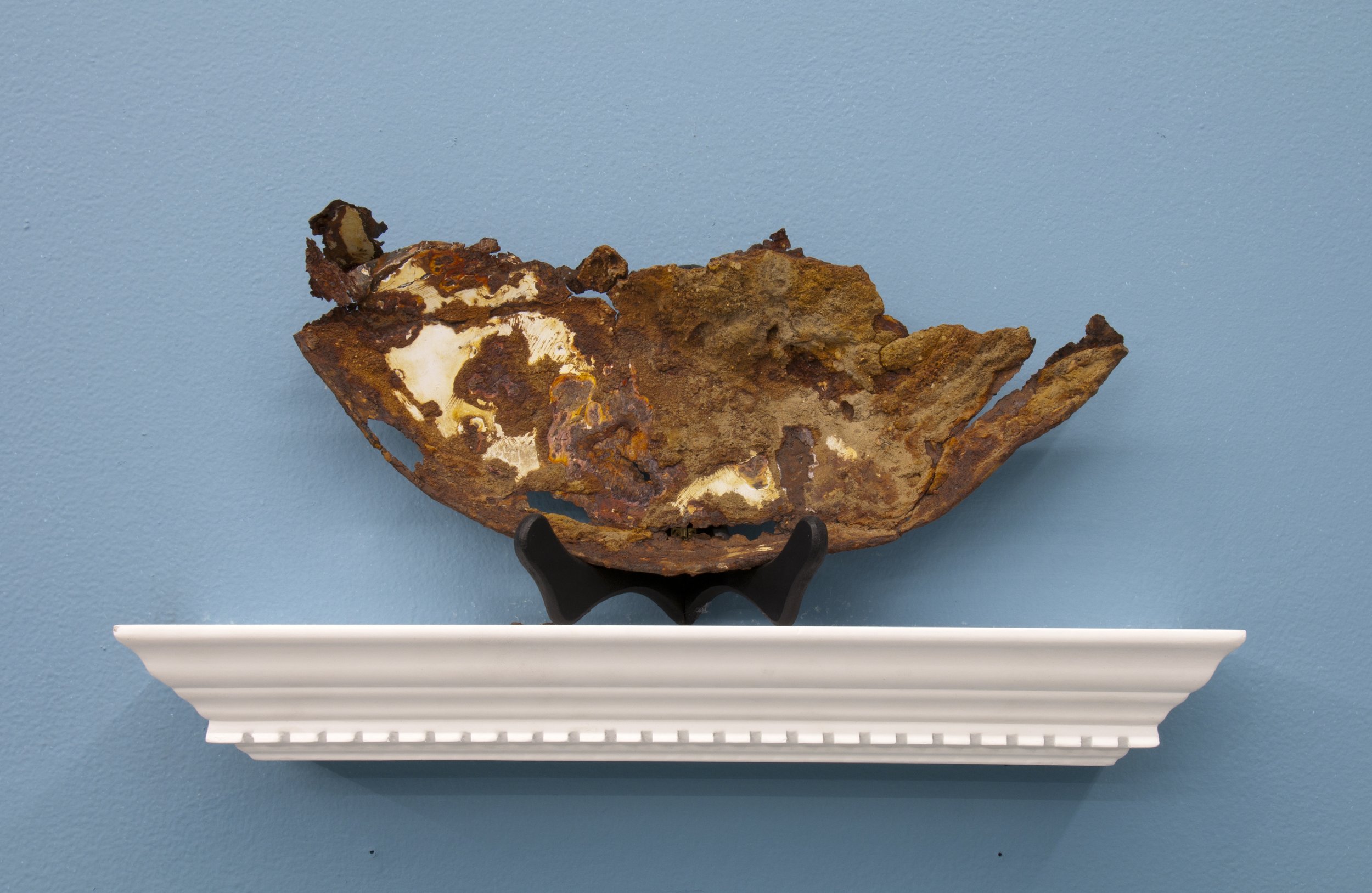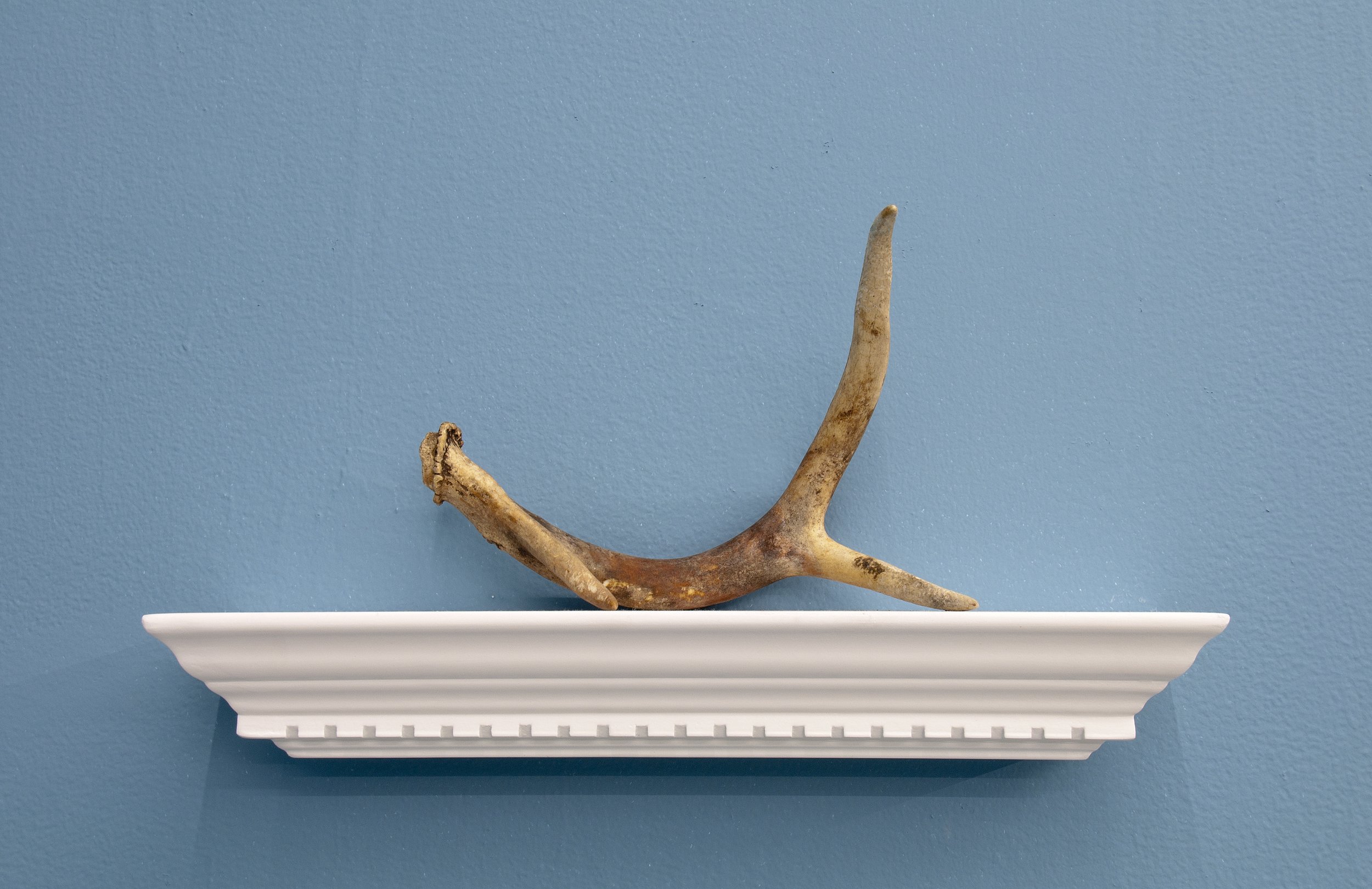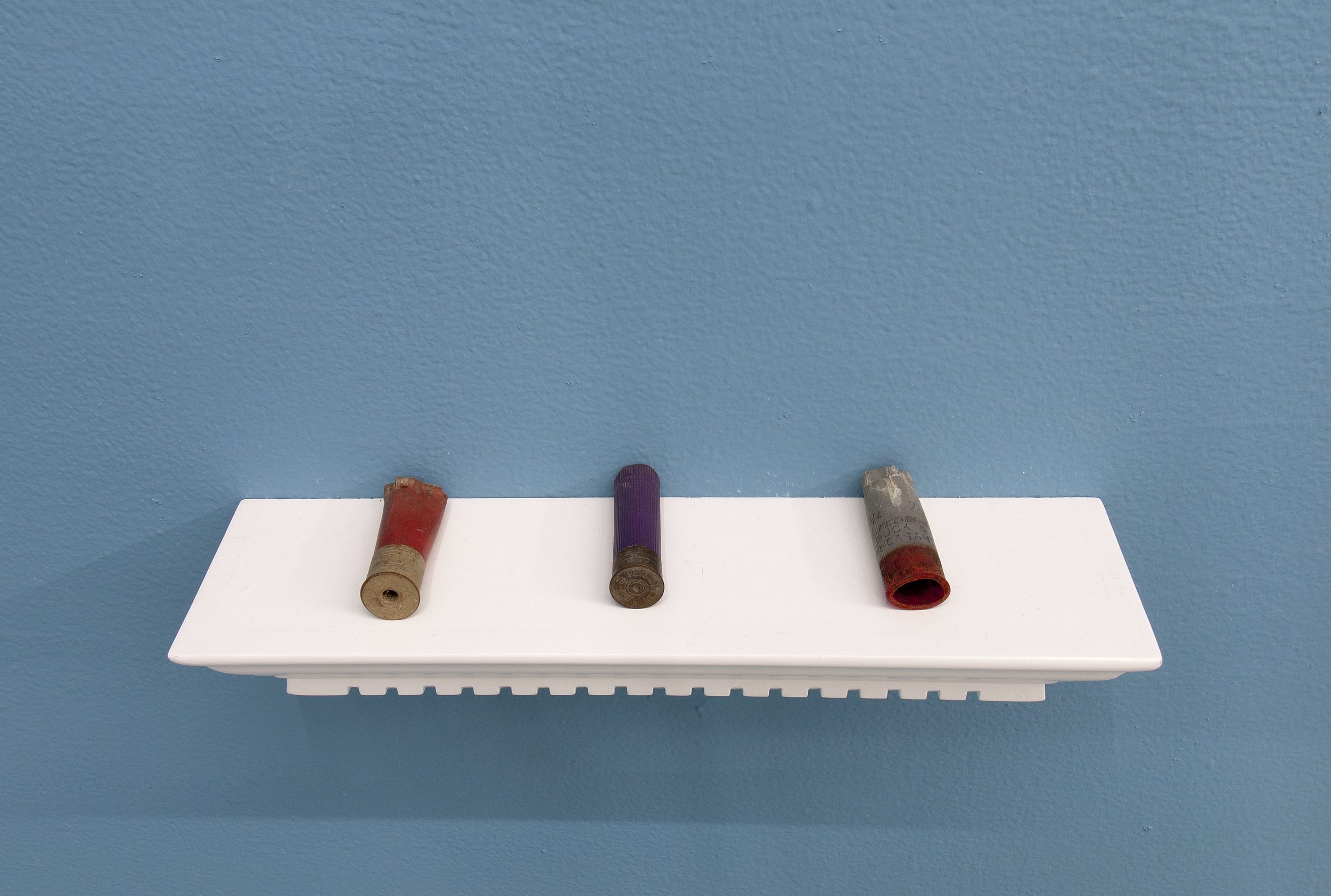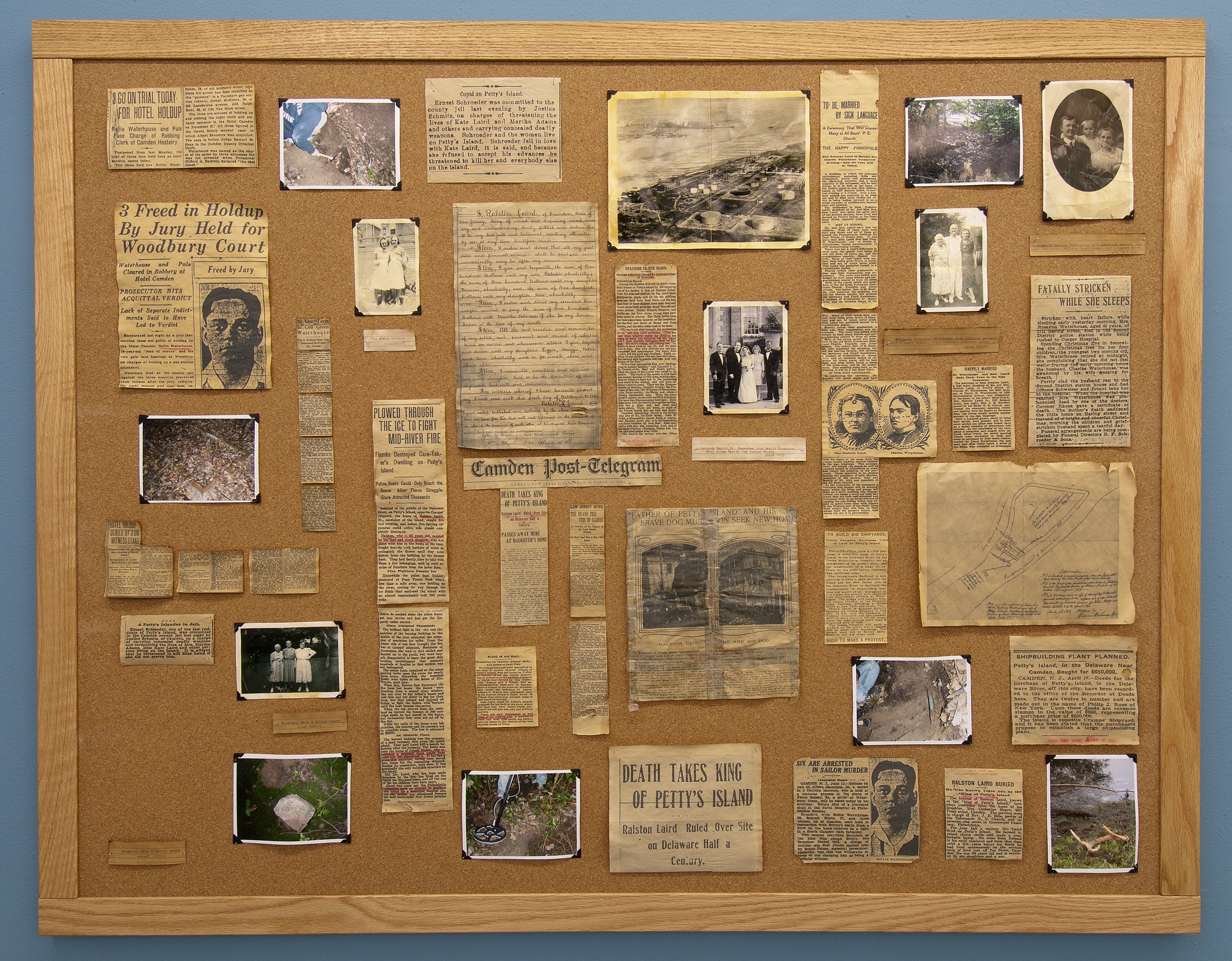Two Riparian Tales of Undoing
PRESENTED BY MAGNAN METZ GALLERY
FEBRUARY 26 - APRIL 9, 2011
Two Riparian Tales of Undoing chronicles the artist’s inquiries over the past year. Riley shifts his focus inland towards marginalized riverfront communities lost to obscurity. The Gallery is divided into two distinct environments: one a reconstruction of An Invitation to Lubberland, a solo exhibition at Cleveland MOCA; the other Reclaiming the Lost Kingdom of Laird an installation at the Philadelphia Historical Society for the Philagrafika Arts Festival.
In Lubberland, Riley investigates the Kingsbury Run, a prehistoric stream now buried beneath the streets of Cleveland. Itinerant workers made their home along the run from the 1870s until the 1930s when they were targeted in a series of gruesome murders and ultimately displaced by the police. Infiltrating the Cleveland sewer system, Riley regains access to the forgotten run, a process documented in the video Search for Lubberland. Through a spiraling tunnel constructed in the front gallery space, a series of mosaics, drawings and videos lead the viewer on this subterranean journey.
…To Determine Whether Things Were Getting Better or Worse (33 x 114 inches), a mosaic diptych meticulously crafted with hand-cut tile, ceramic and glass, depicts a freight train laden with itinerant laborers in search of work. Lain within the mosaic are twenty-six Buffalo nickels, relics of a past where members of the hobo community etched artistic designs and symbols on the coins. A suited figure stands by counting the riders, performing the ‘Tramp Census’ that served to gauge the prosperity—or decline—of American economics. Lubberdise Lost, a mosaic constructed completely from cigarettes in the shape of a chopped tree stump is all that remains of the mythical Hobo’s Paradise. Up in the Trees in Protest concludes at The Run’s headwaters, referencing an obscure political action staged almost a decade later, in response to the destruction of the once-thriving hobo community at Kingsbury Run.
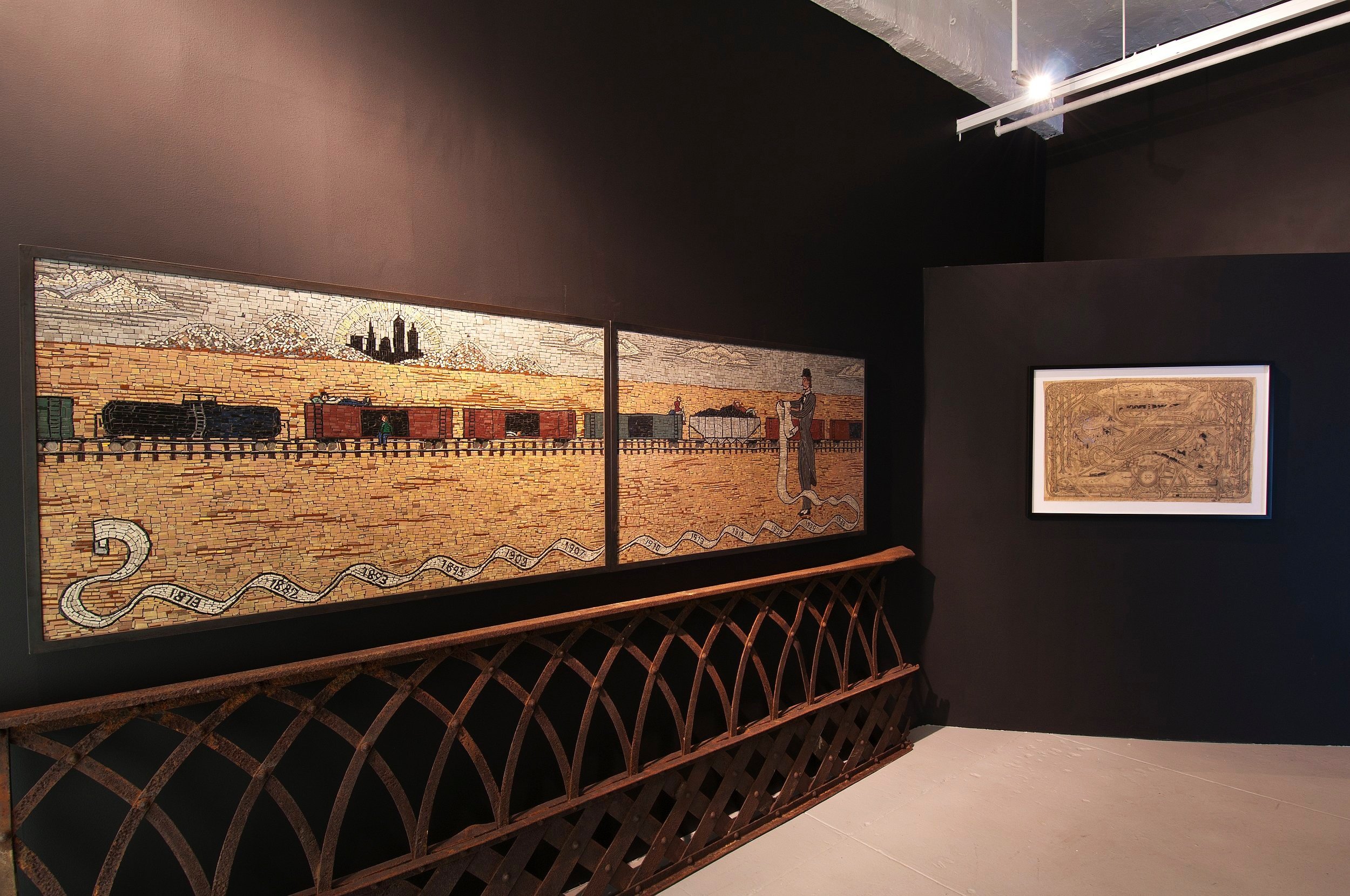
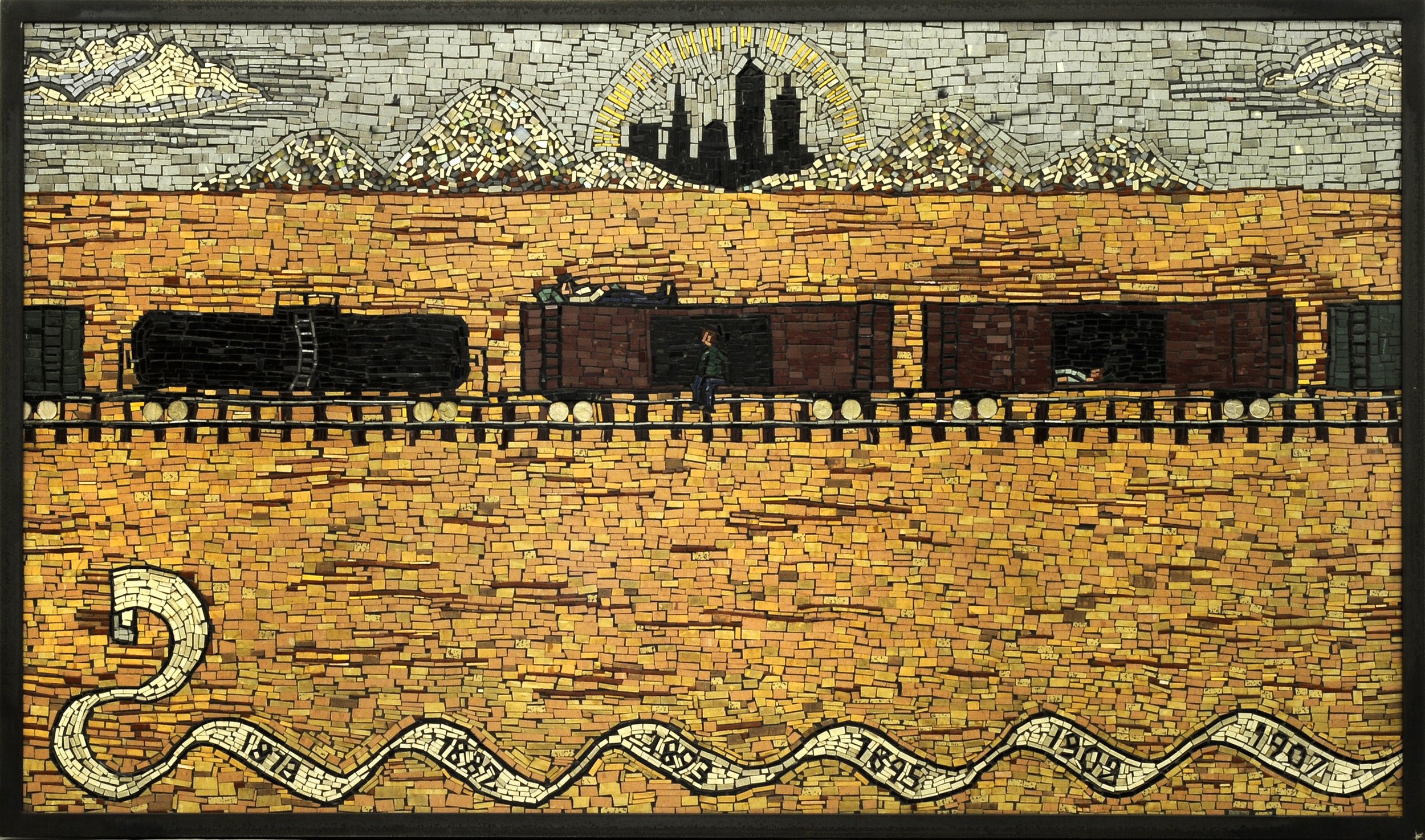
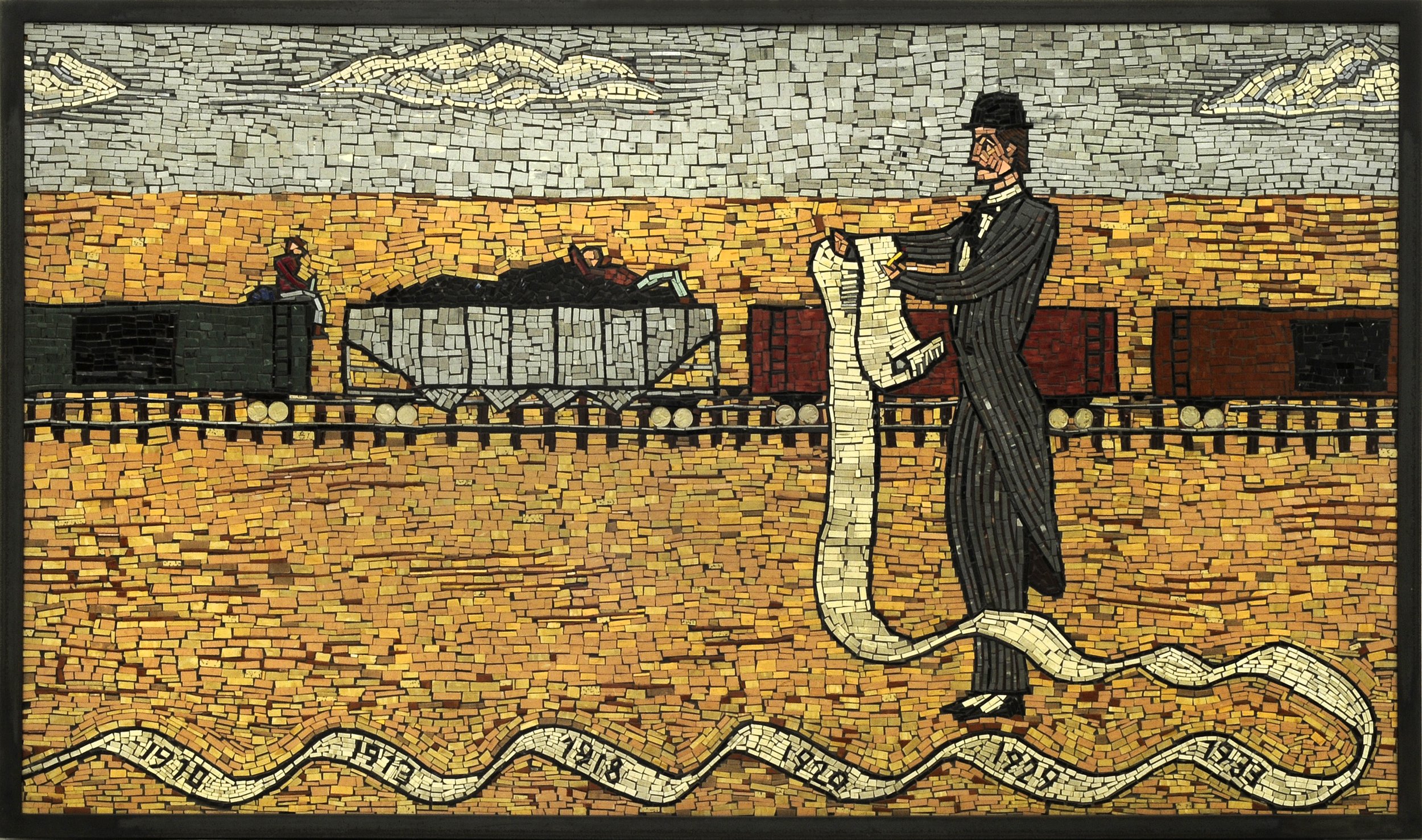
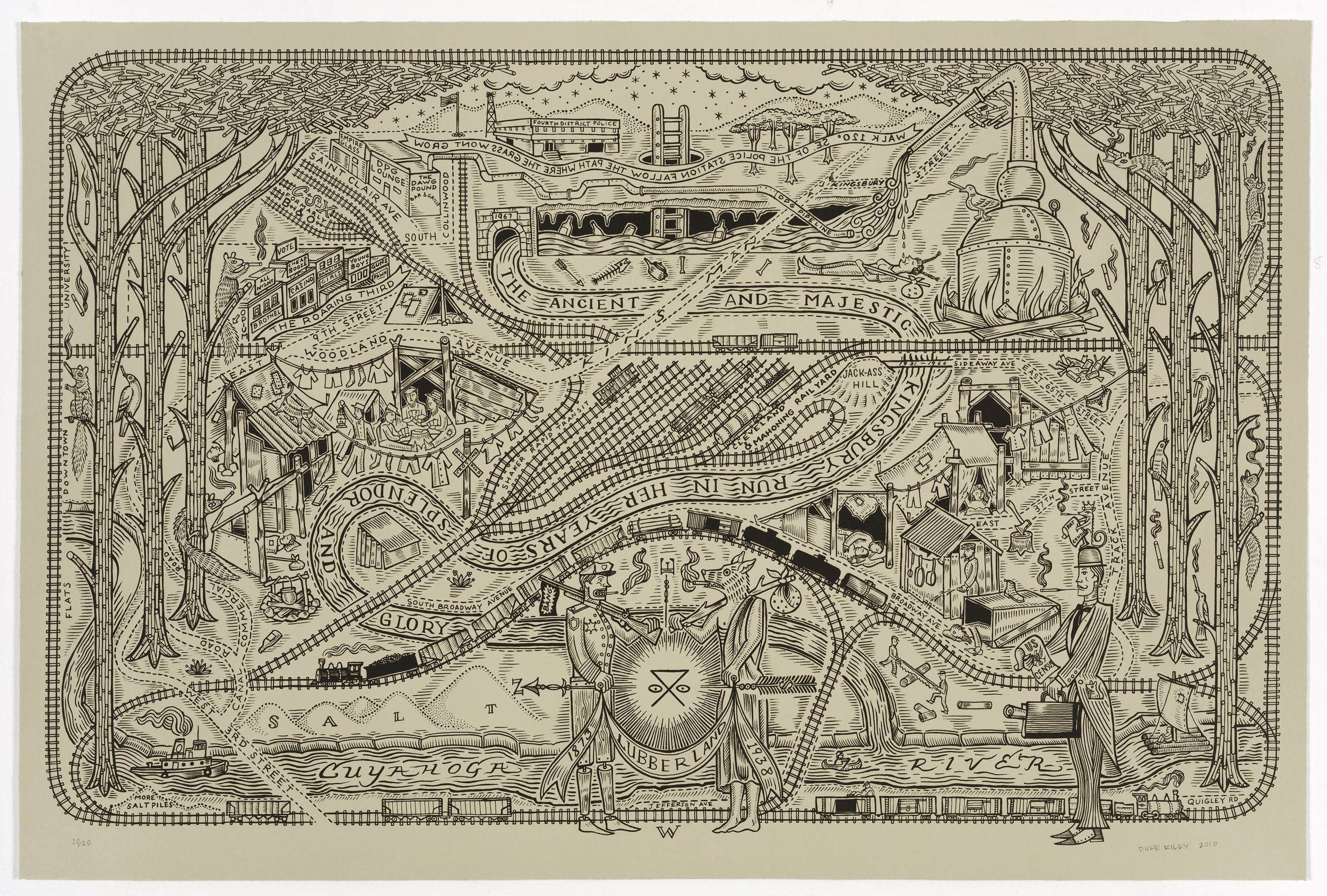
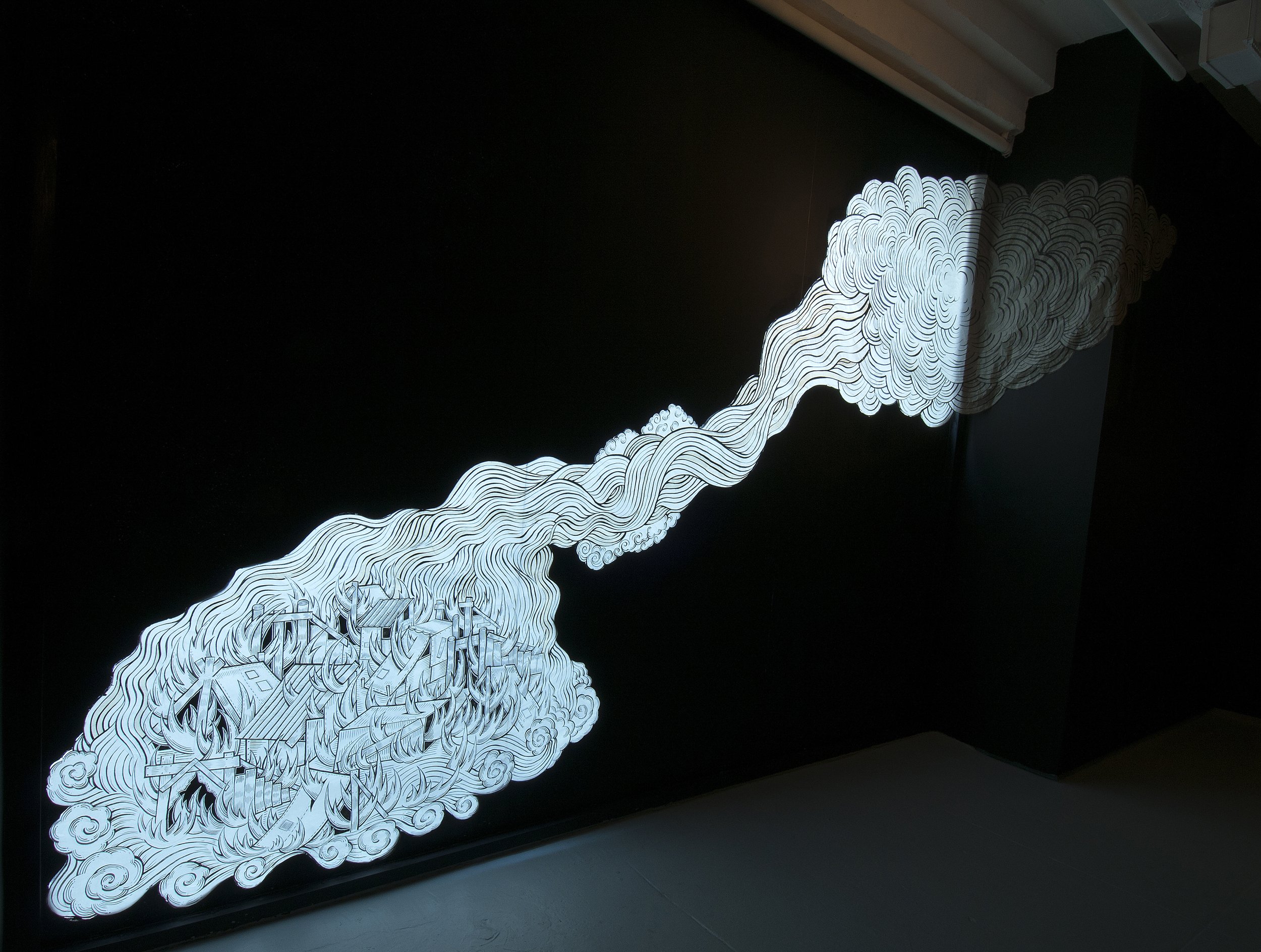
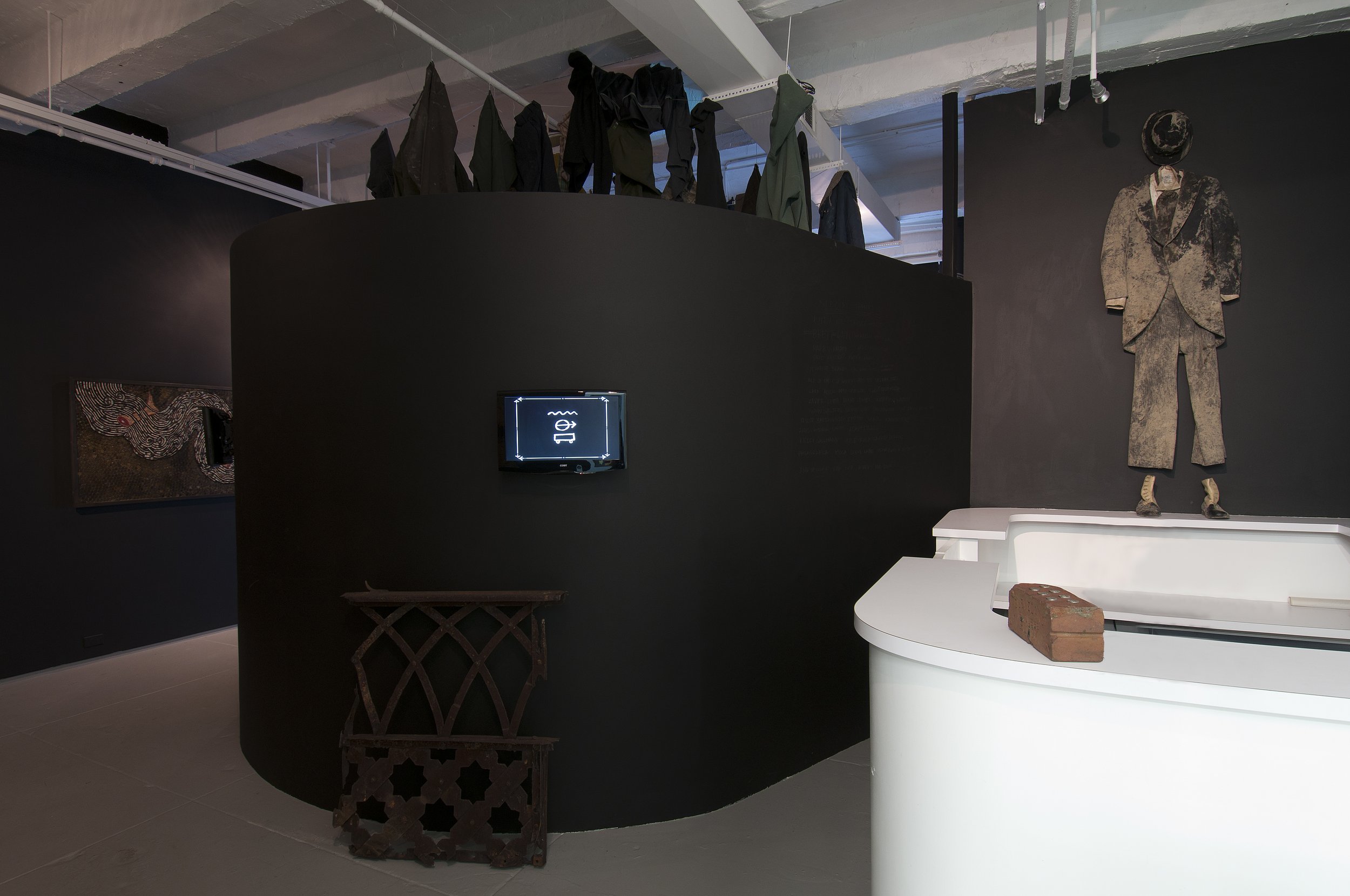
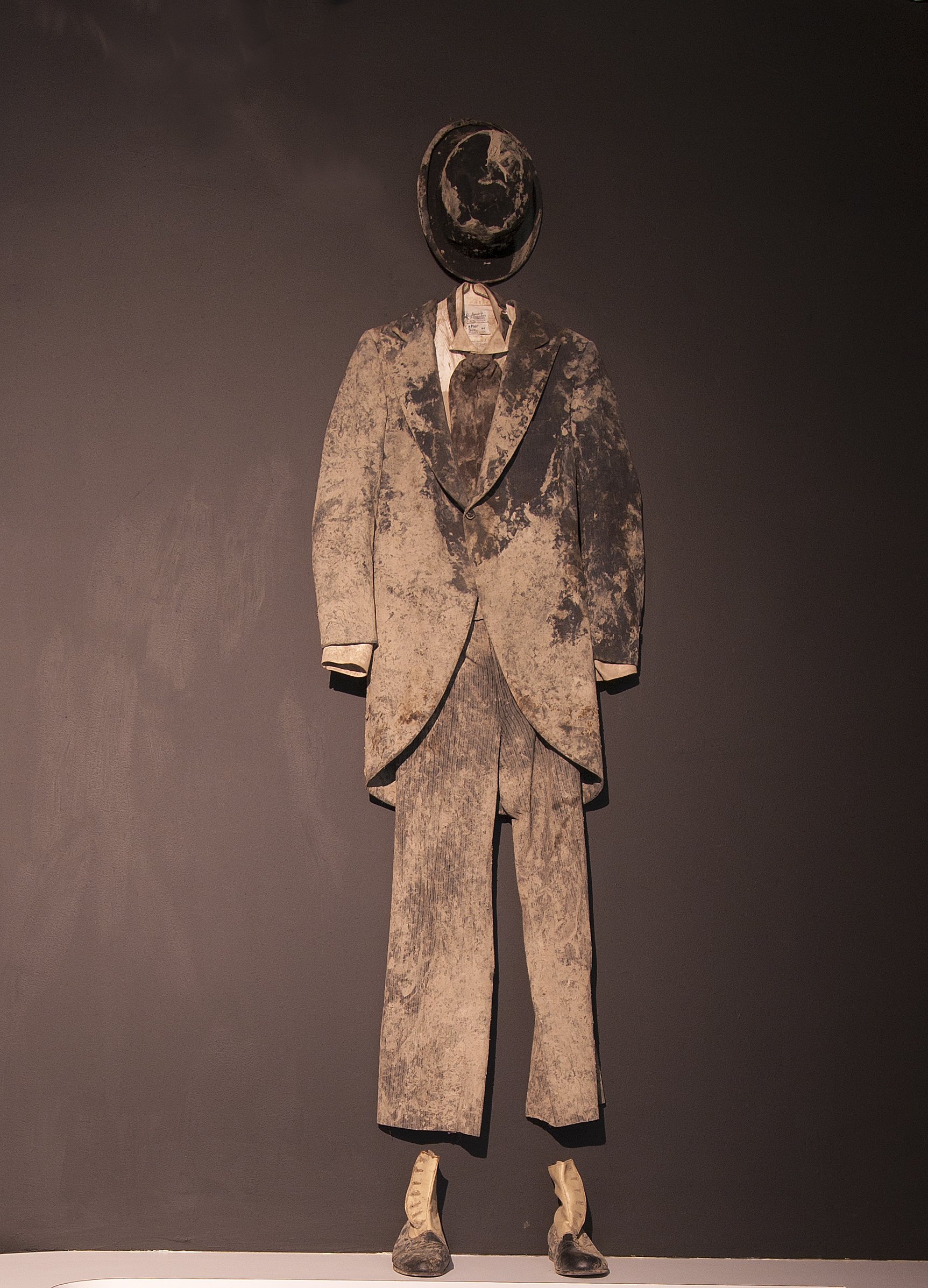
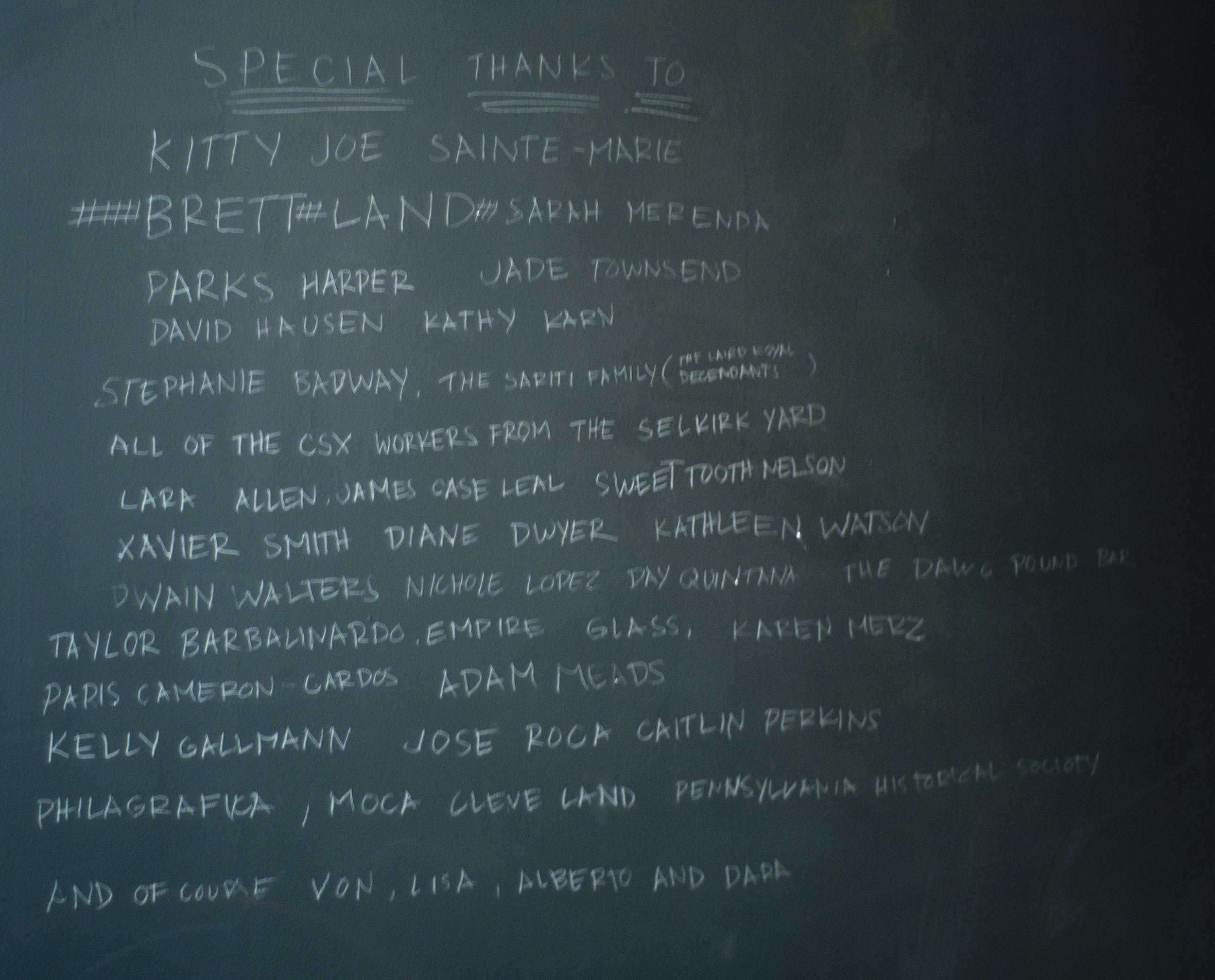
The second gallery space houses Riley’s project Reclaiming the Lost Kingdom of Laird. For this exhibition Riley researched the contentious history of a tiny island in the middle of the Delaware River, and Ralston Laird, the 19th century Irish immigrant and self declared King of Petty’s Island. Riley’s personal research implies that an oil company illegally took possession of the island from Laird shortly after his house suspiciously burned to the ground. Today, the island is owned by the Venezuelan oil company, CITGO.
Through interviews with Laird’s surviving relatives and countless covert visits to the island where he accumulated Laird artifacts, Riley pieces together a commemorative family history documenting the “true heir” to Petty’s Island. In Laird Royal Family Tree (71 x 24 1/2 inches), a detailed family lineage is inked on canary paper sprouting the names of Laird descendents and tracing their line back to the King. For the Laird Royal Family Commemorative Plate Series, Riley memorializes eight Laird men and women by minting their ink portraits onto ceramic plates - reminiscent of a mid-century populist curio native to Pennsylvania.
Concurrent with Riley’s investigation into the Laird family history, a group calling itself the Laird Kingdom Liberation Army invaded Petty’s Island in an attempt to reinstate Ralston Laird’s claim on the land. During this time, a portrait of Ralston Laird mysteriously appeared atop one of several CITGO gas storage drums. The figure, drawn with chalk and blue paint, is visible only when viewed from the air and bears a striking resemblance to the Laird Royal Family Commemorative Plates. The coup d’état of the exhibition, the photograph Aerial Documentation of L.K.L.A. - Occupied Territory on Petty's Island (58 x 32 ½ inches) captures this skilled achievement. Ralston Laird’s portrait rests atop the defunct oil repository, proclaiming the return of the King and true heir to Petty’s Island - better known as the Kingdom of Laird. Riley, on behalf of the Laird Kingdom Liberation Army, wrote an open letter to Hugo Chavez regarding the return of Petty’s Island to the LKLA in the Huffington Post.
